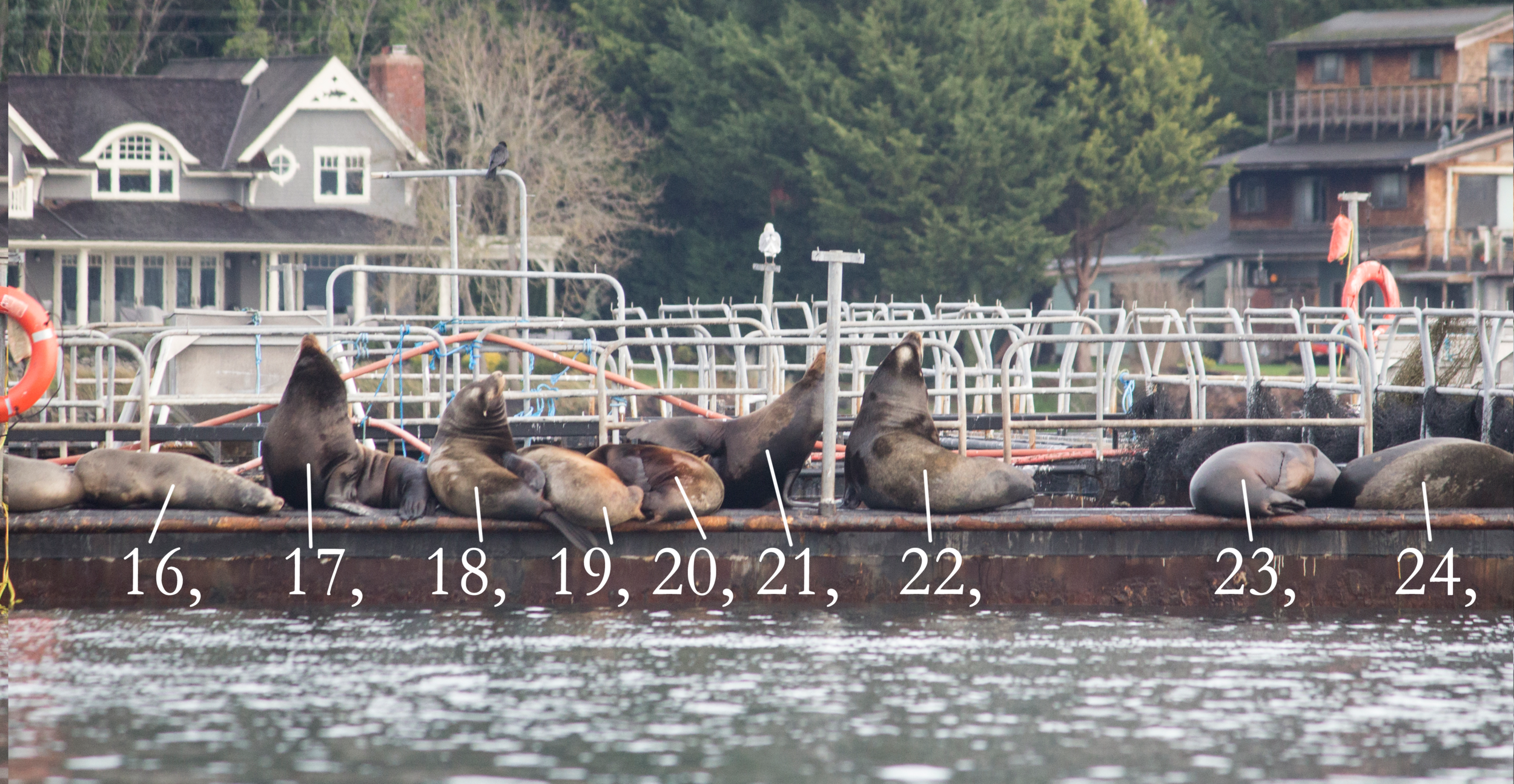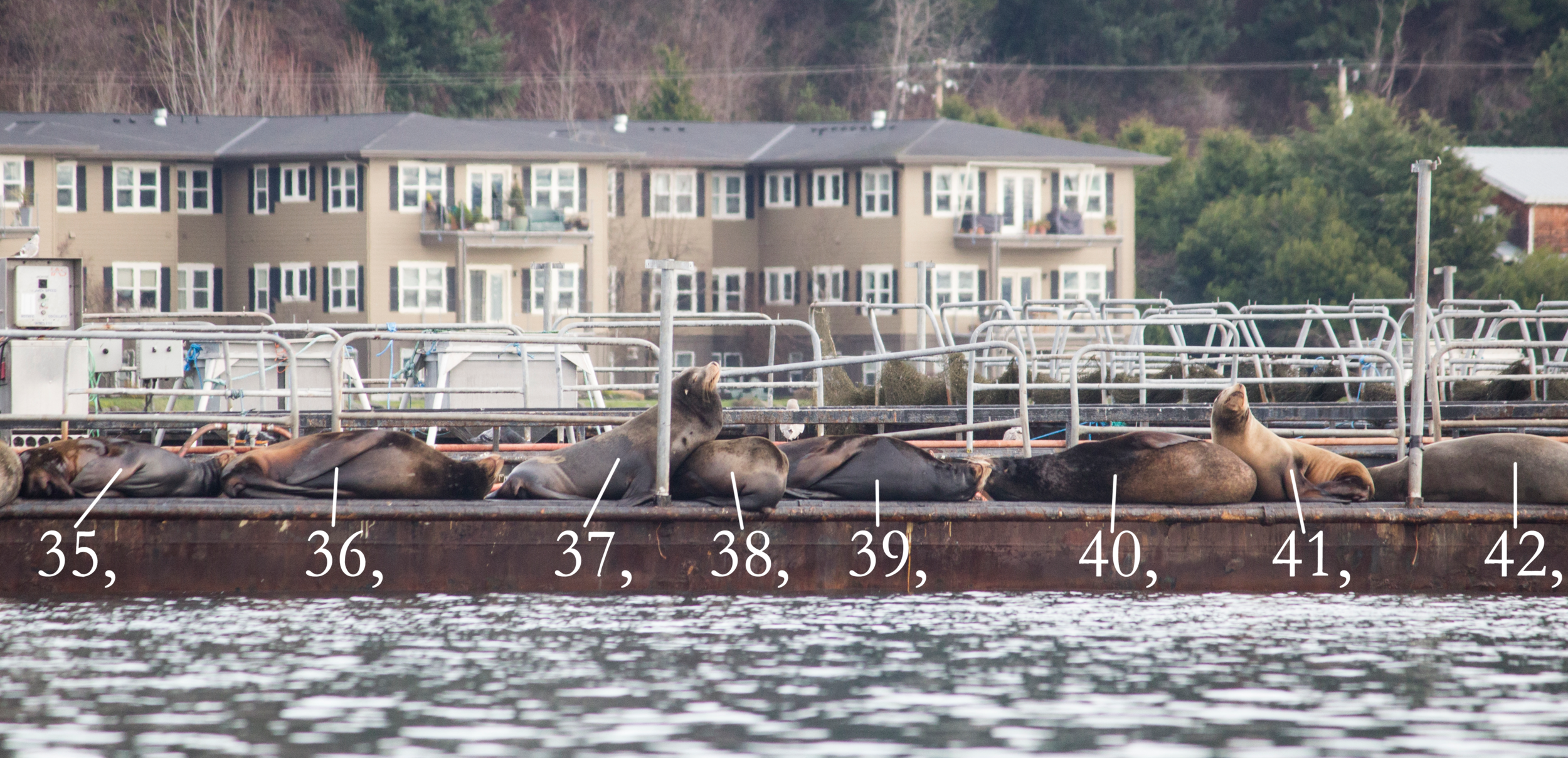Map from discoveryislands.ca
On Thursday, in a truly inspiring victory for wild Pacific salmon, orcas, and BC First Nations, the Canadian government agreed to phase out all open water salmon farms in BC's Discovery Islands near Campbell River over the next 18 months.
This historic decision is the result of the unwavering dedication and direct action of the BC First Nations and their supporters. For years, they have called on Canada's local and federal officials to end net pen salmon farms in their traditional waters where they operate without the Nations' consent. These facilities further contribute to the decline of BC's imperiled salmon runs and threaten the way of life, food security, and the health of the environment of First Nations coastwide.
Net pens located in Discovery Islands are scheduled to be removed in the next 18 months.
Photo by Tavish Campbell (@tavishcampbell)
This new agreement is the largest and latest success by BC First Nations to demand the removal of net pens in their traditional waters. Last year, in a historic negotiation, First Nations in the Broughton Archipelago successfully advocated for the Canadian government to require the immediate removal of five farms and the decommissioning of the remaining twelve by 2023.
The Our Sound, Our Salmon campaign commends the hard work and dedication of the Discovery Islands First Nations, as well as First Nations and Tribal Nations coastwide, who continue to lead this inspiring effort to protect wild salmon and end this dangerous industry throughout the Pacific coast.
In 2018, on the same day Washington passed a landmark law banning all Atlantic salmon net pens, Wild Fish Conservancy’s director and staff proudly participated in a peaceful protest led by the First Nation-led Wild Salmon Defenders Alliance outside a prominent BC legislator's office in Vancouver, BC.
Beginning in April 2019, sea lice outbreaks were reported at 30% of fish farms throughout the BC coast. Researchers found infection rates of juvenile salmon migrating near the pens were most severe in the Discovery Island where 97% of juvenile salmon were infected. For these young salmon, even a few sea lice can be lethal.
The photo gallery below shares photos taken by Tavish Campabell (@tavishcampbell) during sampling of juvenile salmon at farms including the Discovery Islands. Salmon lice were never reported on juvenile salmon in BC prior to the introduction of salmon farming.
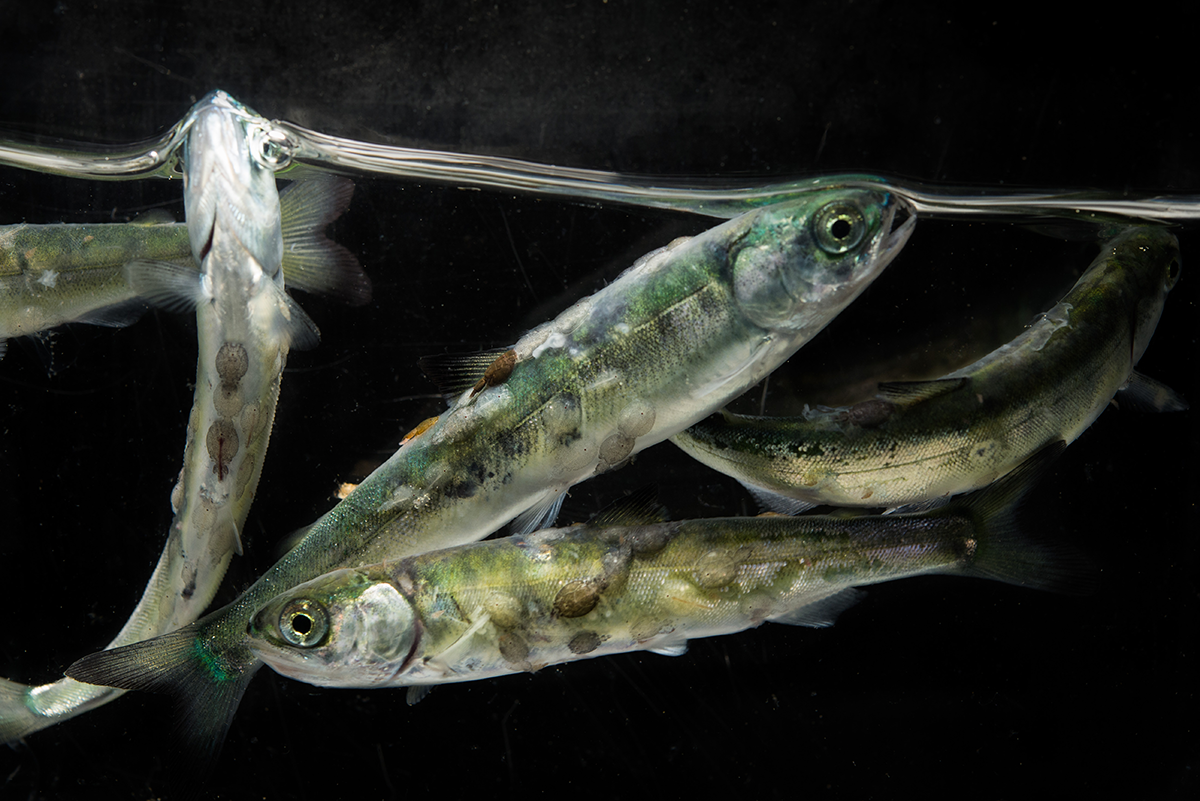
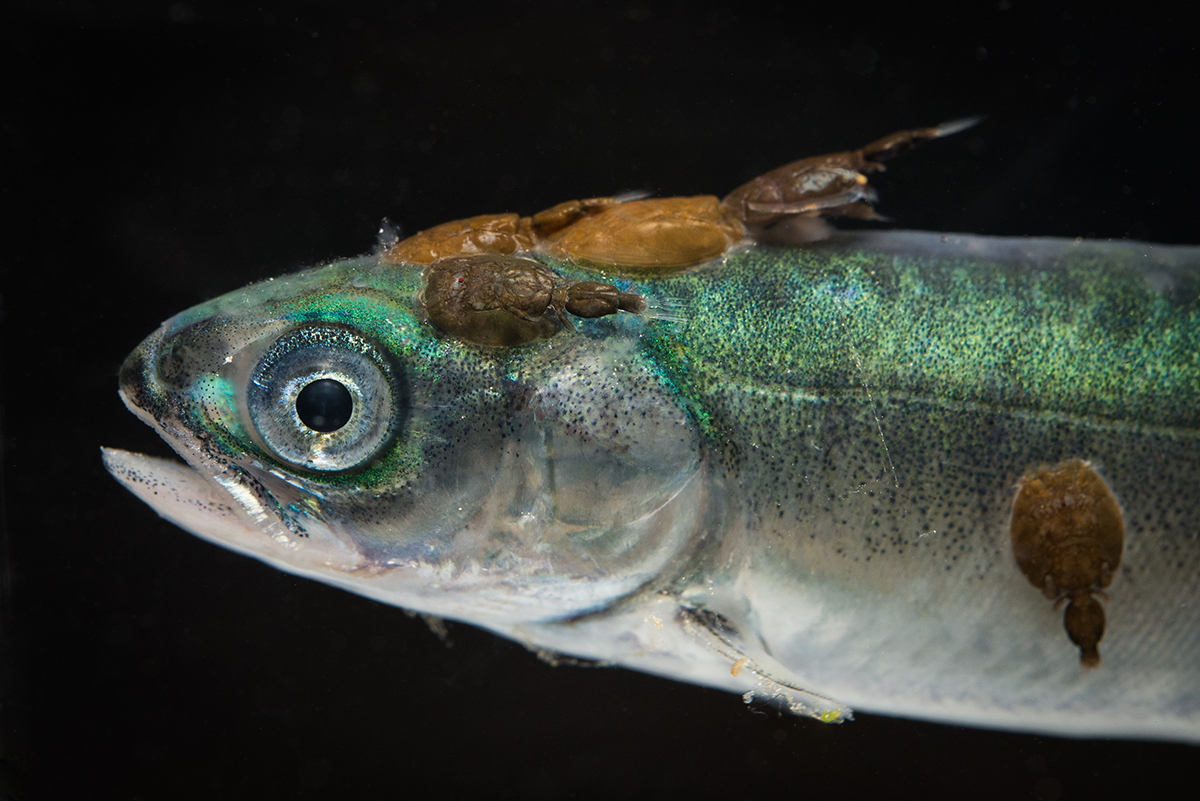
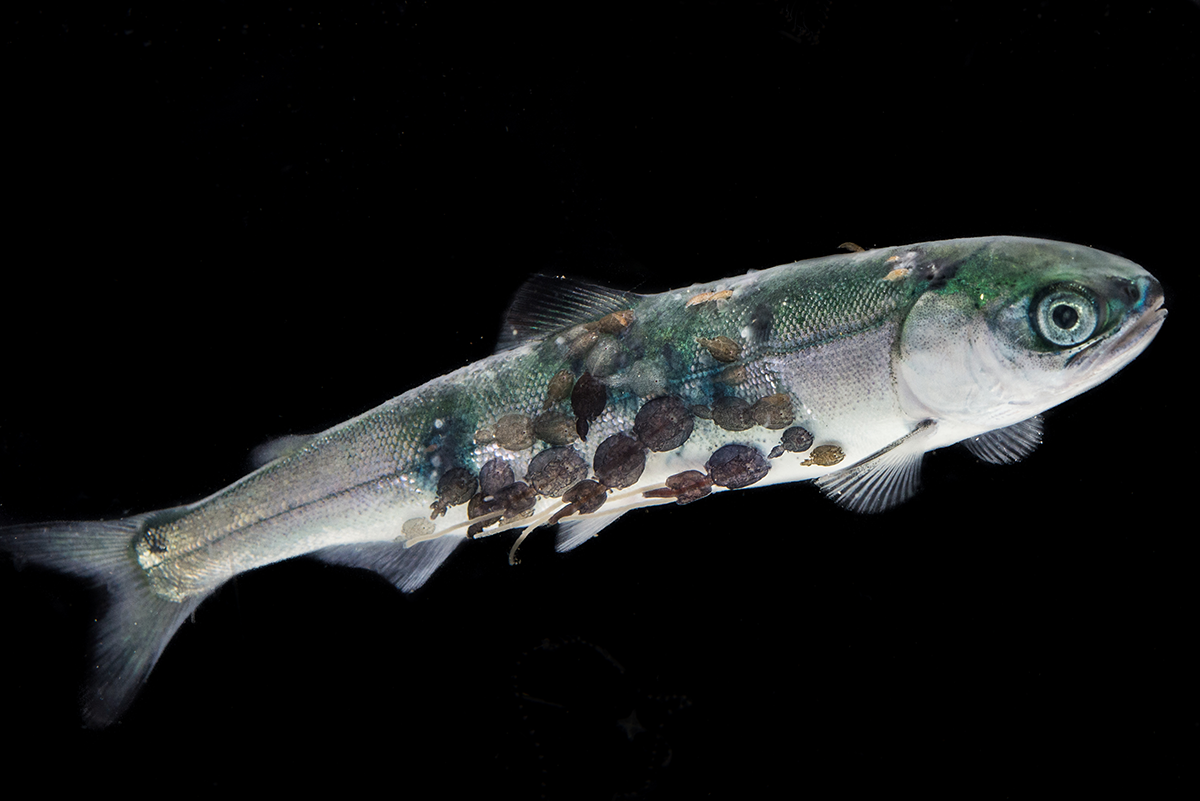
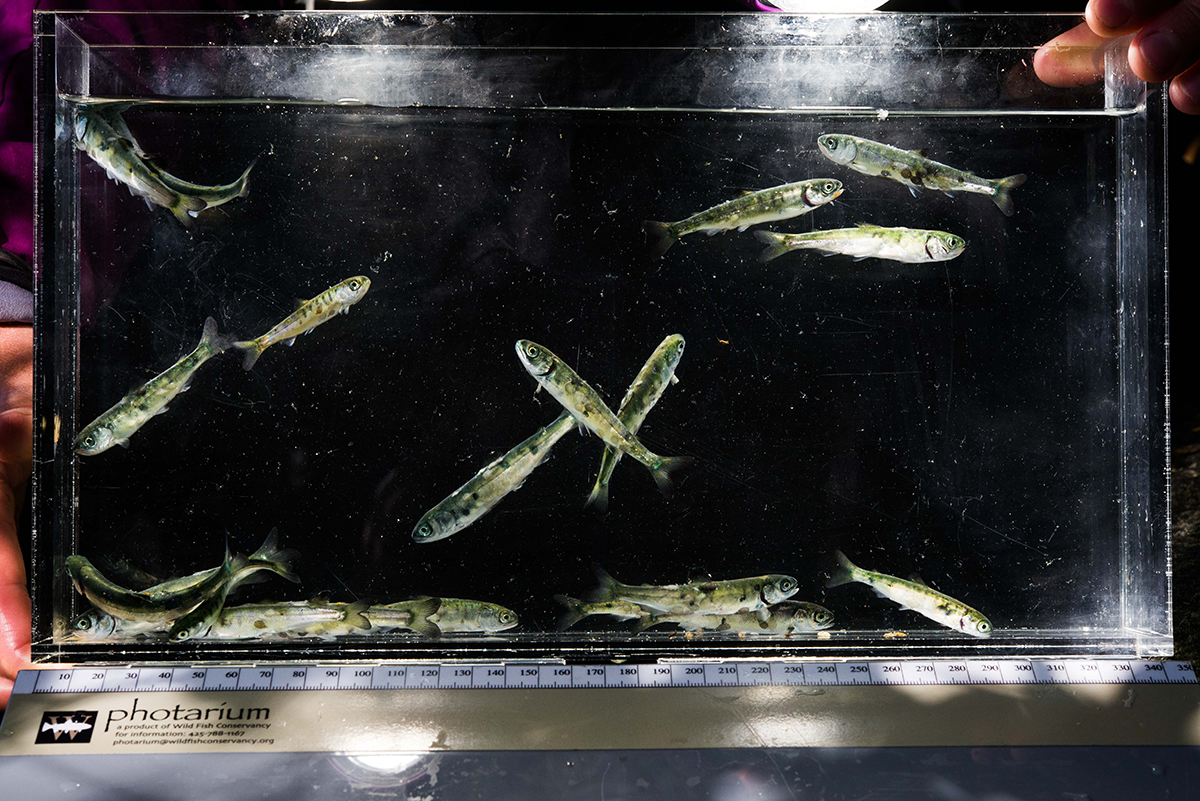
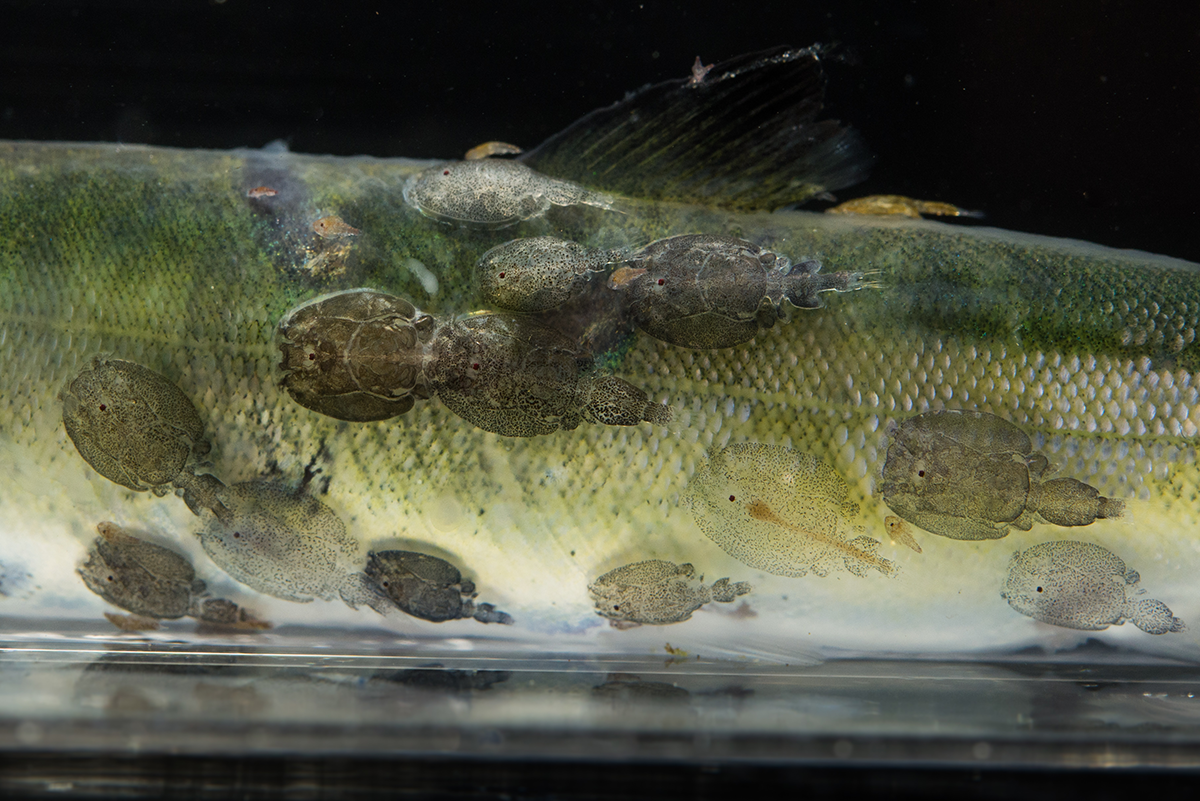
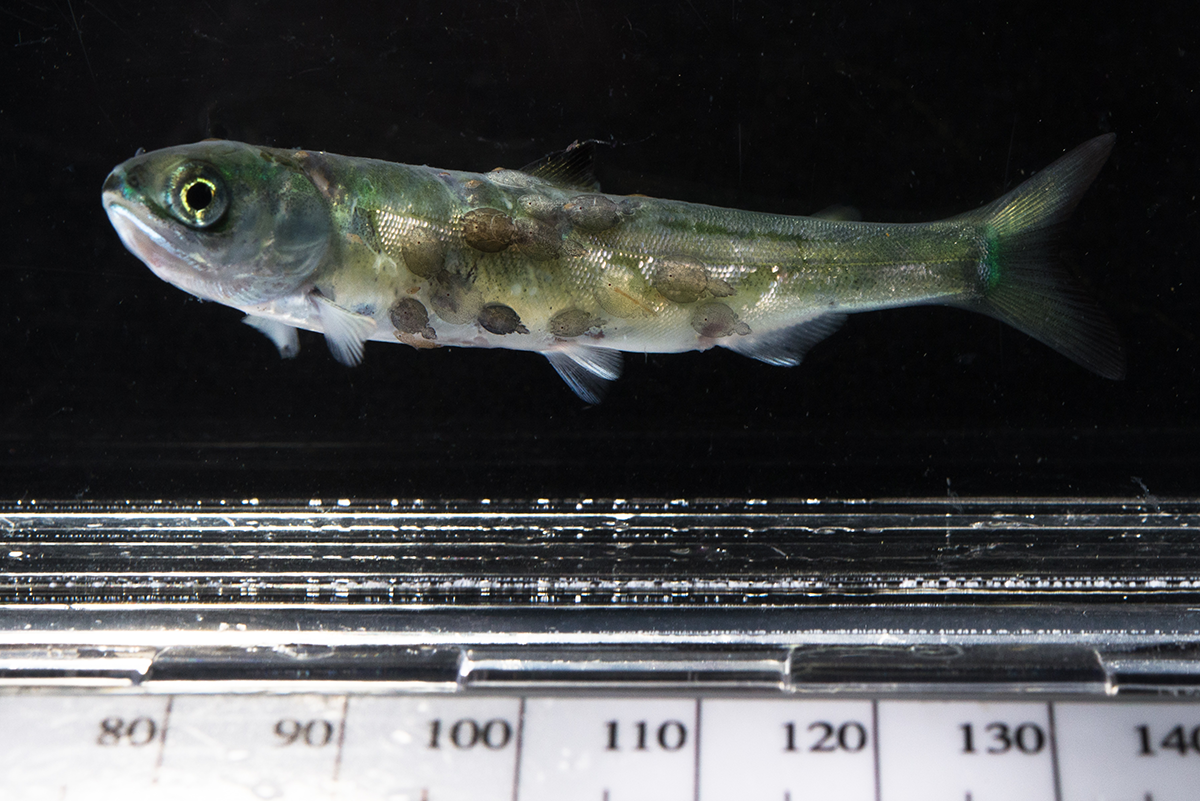
Following the alarming sea lice outbreak in the Discovery Islands, 101 B.C. First Nations and their supporters called on the Canadian government this September for the removal of all Discovery Islands salmon farms, asking they be moved to land-based closed-containment systems.
The group called for the government to uphold a key recommendation of the Cohen Commission (which published its landmark study on how to reverse the decline of Fraser River salmon in 2012) to close salmon farms in the Discovery Islands by September 30, 2020 if they continued to pose a risk to wild salmon. Read the letter Our Sound, Our Salmon delivered to Canada's leaders standing in solidarity with BC First Nations.
The removal of these 19 facilities within the Discovery Islands represents a major victory and a huge step forward for our coastwide, international coalition and shared effort to end commercial net pen aquaculture throughout the Pacific coast. Salmon have no borders, and neither does our shared advocacy to end this dangerous practice coastwide.













